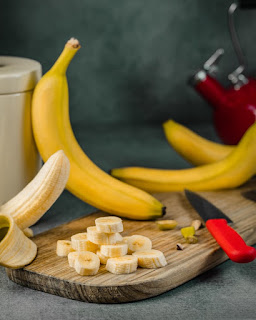Bananas, the humble fruit that has been a staple in households around the world for centuries, have a lot more to offer than just their delicious taste and convenience.
Beyond being a tasty and nutritious snack, bananas have proven to be an excellent source of sustainable energy for athletes and fitness enthusiasts.
In this blog post, we will explore why bananas are a go-to choice for those seeking an energy boost while also delving into their sustainable qualities.
Bananas: A Natural Energy Booster
Athletes and fitness enthusiasts have long recognized the value of bananas as a quick and effective source of energy. This energy-boosting quality can be attributed to several key factors:
1. Carbohydrates
Bananas are rich in carbohydrates, primarily in the form of natural sugars like glucose, fructose, and sucrose. These sugars provide a rapid and easily digestible source of energy, making them an ideal choice for both pre- and post-workout consumption.
2. Essential Minerals
Bananas are packed with essential minerals like potassium, magnesium, and manganese. These minerals play a crucial role in maintaining proper muscle function and preventing cramps and fatigue during exercise.
3. Vitamins
Bananas are a good source of various vitamins, including vitamin C and vitamin B6. Vitamin C helps boost the immune system, while vitamin B6 is essential for converting food into energy.
Sustainable Aspects of Bananas
Bananas not only provide an excellent source of energy but also have some noteworthy sustainability attributes:
1. Low Carbon Footprint
Bananas are one of the fruits with a relatively low carbon footprint. They require less energy-intensive farming practices compared to some other fruits and vegetables. Additionally, bananas are often grown in regions with favorable climates, reducing the need for artificial heating or cooling during cultivation.
2. Minimal Food Waste
Bananas are known for their longer shelf life compared to many other fruits. Their natural protective peel helps prevent spoilage and food waste, reducing the need for excessive packaging.
3. Local Production
In many parts of the world, bananas are grown locally or regionally, reducing the carbon emissions associated with long-distance transportation. Supporting local banana producers can contribute to sustainable agriculture and reduce the environmental impact.
The Bottom Line
Bananas are more than just a tasty fruit; they are a sustainable source of energy that can benefit athletes and fitness enthusiasts. Their high carbohydrate content, essential minerals, and vitamins make them a top choice for those seeking a quick energy boost.
Additionally, their low carbon footprint, minimal food waste, and potential for local production make them an environmentally-friendly snack option.
So, the next time you're looking for a pre- or post-workout snack that not only fuels your body but also supports sustainability, reach for a banana. You'll not only be boosting your energy levels but also making a positive choice for the planet.



Comments
Post a Comment